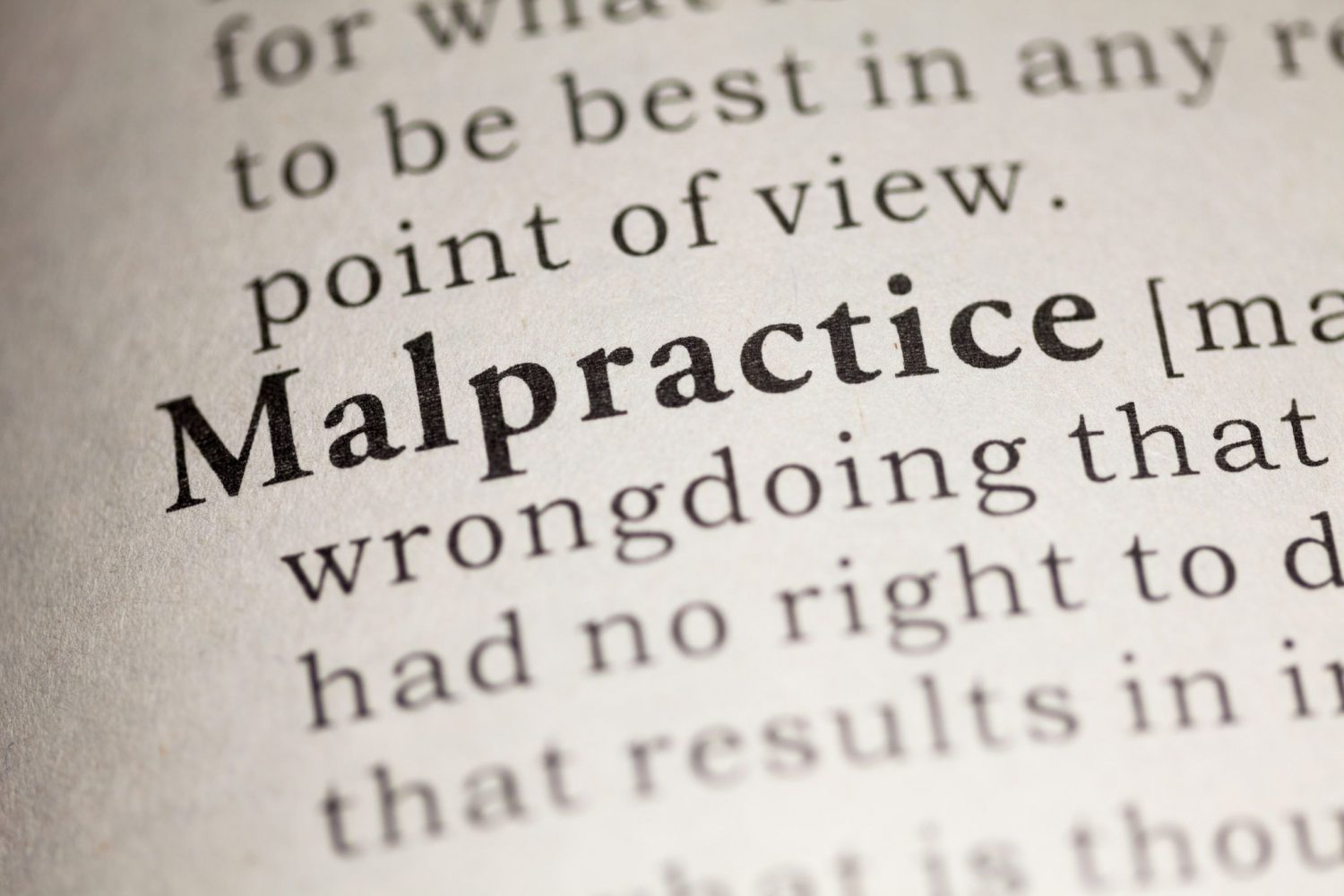The 14 Most Common Kinds Of Legal Malpractice Errors
There are various errors that comprise a majority of the thousands of legal malpractice claims in the United States each year.
1. Failure to Know/Apply The Law
Failing to know or the apply the law properly is the most common type of legal malpractice claim in the United States. This legal malpractice error is defined almost exactly how it sounds.
Failure to know or apply the law can be defined in two ways:
- When an attorney is not fully aware of all the legal circumstances and details surrounding a case.
- When an attorney is aware of all legal principles but fails to implement appropriate strategies due to negligence.
2. Planning/Strategy Errors
Planning and strategizing is an absolute must before any legal proceedings. A planning or strategy error claim usually arises if an attorney does not plan adequately enough and this, in turn, hurts the client’s case.
3. Failure to File Documents Without a Deadline
Not having a deadline to file documents is not an excuse for not filing it. You would be surprised to know that this is a very common legal malpractice error. Attorneys are expected to file all necessary documents on their clients’ behalf regardless of time-sensitivity.
4. Inadequate Discovery Of Facts | Inadequate Investigation
This is a legal malpractice error that involves claims that the attorney didn’t perform a thorough investigation or did not use the appropriate methods of discovery to ensure an adequate investigation.
5. Failure to Calendar
Attorneys are required to stay on top of all deadlines, court dates, and documentation on behalf of their clients. If a lawyer is aware of a deadline but failed to take initiative and misses it, a case for failure to calendar can be made.
6. Failure to Know Deadline
When an attorney is completely unaware of a deadline or failed to know how the deadline applies in a particular case.
7. Procrastination
Procrastination claims arise when a lawyer simply doesn’t deal with a client’s matters in a timely enough fashion and this in turn leads to a loss for the client.
8. Failing to Obtain Client Consent
Failure to obtain client consent covers two instances:
- When the client claims that he/she would’ve made a different choice if the attorney had explained all the details, offered viable alternatives, or fully explained the risks involved.
- When a lawyer needs consent from a client to take action but fails to do so.
9. Conflict Of Interest
If a lawyer has a matter that conflicts with the interests of his/her client, a legal malpractice claim can be made. It doesn’t matter whether or not the attorney was aware of the conflict.
10. Fraud
One of the more self-explanatory claims, fraud is simply defined as any fraudulent actions taken by the attorney.
11. Failure To Follow Instructions
Another self-explanatory claim. Attorneys are supposed to follow the instructions of their clients and a failure to follow instructions claim can be made whether or not the failure was intentional or unintentional.
12. Error In Record Search
If a title, patent, or trademark search does not disclose important items on public record a case for error in record search can be made. This also applies when no public search was conducted when it should have been
13. Clerical Errors
Clerical errors refer to typographical errors and the transposing of numbers in legal documents that would have otherwise been corrected with effective proofreading.
14. Improper Withdrawal
This covers claims that an attorney has not properly withdrawn representation by due to lack of proper communication.
Contact Lydecker For Legal Malpractice Defense
At Lydecker, our team of Miami legal malpractice attorneys has years of experience representing other lawyers in attorney malpractice claims. Contact us today to schedule a legal consultation.

